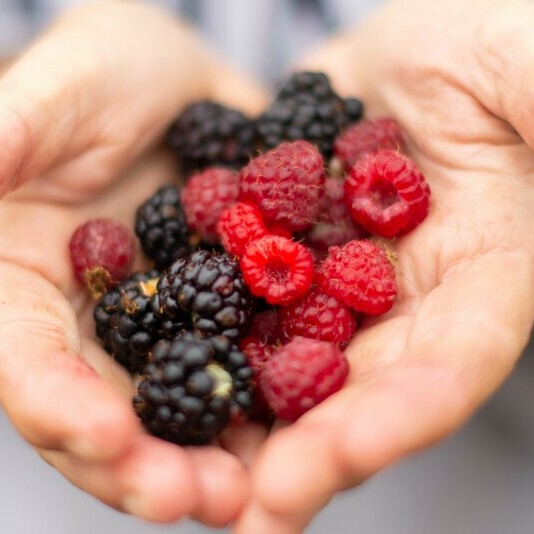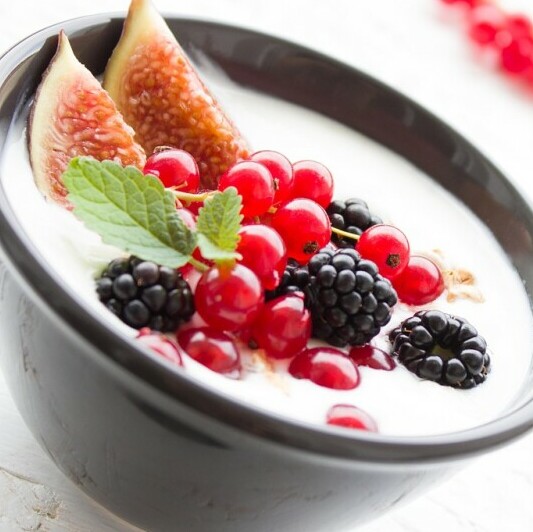Have you ever wondered about those interesting words—prebiotics and probiotics—showing up in health talks and certain foods? These little wonders play big roles in keeping our tummies healthy and happy. Let’s take a closer look at what they do and why they’re such good pals for our gut.
What are the differences between prebiotics and probiotics?
Prebiotics – These are a special food that feeds the good stuff in our tummies. They’re like the fibers in foods such as bananas and oats that our gut buddies love.
Probiotics – They are live bacteria found in yogurt and sauerkraut, which are like the helpful crew working in our bellies to keep everything in balance.
Clearing Up the Confusion
Sometimes, people mix up these terms, thinking they do the same thing but have different jobs. Prebiotics are the food for little buddies in our gut. Probiotics provide the microbes themselves to improve our digestive health.
Diving into Prebiotics: 
These fiber heroes are like a big buffet for the good guys in our tummies. They don’t get digested by us, but they make sure our good gut buddies stay strong and help boost our immune system. Foods like onions, bananas, and oats are where you can find these special fibers.
Discovering Probiotics
Let’s get to know our live bacteria heroes a bit better! They’re in foods like yogurt and sauerkraut and are great at making our digestion smoother, keeping our skin healthy, and helping our tummies do their job.
Probiotic Powerhouses 
- Yogurt: A classic source of probiotics, yogurt provides a rich supply of beneficial bacteria.
- Kefir: A fermented milk drink, kefir offers a potent blend of probiotics and digestive enzymes.
- Sauerkraut: This fermented cabbage dish is a traditional source of probiotics and vitamin K.
- Tempeh: A fermented soybean product, tempeh delivers a protein-rich dose of probiotics and prebiotics.
- Bananas: These potassium-rich fruits are loaded with prebiotics, particularly fructans.
- Apples: A versatile fruit, apples provide a variety of prebiotics, including pectin and polyphenols.
- Berries: Antioxidant-rich berries, such as blueberries and raspberries, offer a wealth of prebiotics.
- Garlic: This pungent allium contains prebiotics known as fructans, which promote gut health.
- Onions: Another allium, onions are a good source of prebiotics, including fructans and inulin.
- Leeks: Related to onions, leeks provide prebiotics that support gut bacteria.
- Asparagus: This nutrient-dense vegetable offers prebiotics, particularly inulin.
- Artichokes: Known for their unique flavor, artichokes are rich in prebiotics, including inulin.
- Whole Grains: Whole wheat, oats, and quinoa are excellent sources of prebiotics, such as beta-glucans.
- Legumes: Beans, lentils, and peas provide prebiotics that nourish gut bacteria.
Both probiotics and prebiotics play key roles in maintaining a healthy gut. A happy gut is vital for overall well-being.
The Importance of Prebiotics and Probiotics for Gut Health
The Importance of Prebiotics and Probiotics for Gut Health
Prebiotics: The Gut Nourishers
Prebiotics act as nourishment for the good bacteria in our gut. They are like a buffet for these beneficial microbes, aiding in digestion, nutrient absorption, and bolstering the immune system. Found in foods like bananas, onions, and whole grains, they play a vital role in promoting gut health.
Probiotics: The Gut Guardians
On the other hand, probiotics are the live bacteria that actively support our gut health. They assist in breaking down food, especially complex carbohydrates, ensuring efficient nutrient absorption. Probiotics also fortify the immune system by stimulating the production of immune cells, defending the body against harmful pathogens. Additionally, they possess natural anti-inflammatory properties, helping to reduce chronic inflammation.
The power of prebiotics and probiotics Together
So, are you better off taking prebiotics or probiotics? Or maybe both? The thing is, they both play important roles in keeping our tummies happy. It’s like they’re a tag team—they work even better when they’re together! But before making changes to what you eat, it’s a good idea to chat with a doctor. They can guide us on the best way to bring these gut superheroes into our daily routine.
Here are some common questions people ask about probiotics vs prebiotics, along with answers:
Q: What’s the difference between probiotics and prebiotics?
A: Probiotics are live microorganisms that are similar to the beneficial bacteria that naturally live in your gut. Prebiotics are non-digestible fibers that serve as food for the beneficial bacteria in your gut.
Q: Why are probiotics and prebiotics important for gut health?
A: Probiotics help to maintain a healthy balance of bacteria in your gut, which is important for digestion, immune function, and overall health. Prebiotics provide the fuel that probiotics need to thrive, so they both play an important role in gut health.
Q: What are some good sources of prebiotics?
A: Prebiotics are found in many plant-based foods, such as fruits, vegetables, whole grains, and legumes. Some good sources of prebiotics include bananas, apples, berries, garlic, onions, leeks, asparagus, artichokes, whole wheat, oats, quinoa, beans, lentils, and peas.
Q: Should I take a probiotic supplement?
A: Whether or not you should take a probiotic supplement depends on your individual needs. If you have any concerns about your gut health, talk to your doctor.
Q: Are there any risks associated with taking probiotics or prebiotics?
A: Probiotics are generally safe for most people. But, they may cause side effects, such as gas, bloating, or diarrhea, in some people. Prebiotics are also generally safe for most people. However, they may cause gas and bloating in some people.
Q: How can I get more probiotics and prebiotics in my diet?
A: There are a few things you can do to get more probiotics and prebiotics in your diet:
- Eat fermented foods, such as yogurt, kefir, sauerkraut, and tempeh.
- Eat plenty of fruits, vegetables, whole grains, and legumes.
- Take a probiotic supplement, if necessary.
How do we know if we need prebiotics?
Well, if you feel like your tummy isn’t working it’s best if you have digestion issues, or if you’re not feeling great overall, it might be a sign that your gut needs some extra love, possibly in prebiotics.
In Conclusion
Probiotics and prebiotics are essential allies in the quest for a healthy gut. By incorporating these beneficial compounds into your diet, you can cultivate a thriving gut microbiome, reaping the rewards of improved digestion, enhanced immunity, and overall well-being. Embrace a gut-friendly lifestyle and experience the transformative power of a balanced digestive system.
References
- Frontiers | Future of Probiotics and Prebiotics and the Implications for Early Career Researchers (frontiersin.org)
- Prebiotics vs. Probiotics: Can You Take Them Together? (healthline.com)
- https://lifewaykefir.com/the-importance-of-prebiotics
